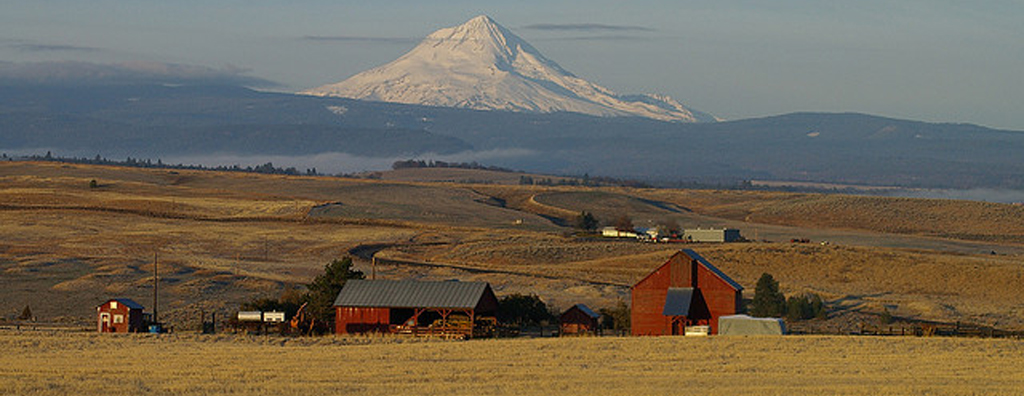
Carbon Pricing Spurs Economic Development in Oregon
When the Oregon legislature passed a law in 1997 requiring new power plants to reduce carbon emissions, it was seen as a significant step in combatting climate change. Looking back almost 20 years later, it’s also played a role in developing rural economies throughout Oregon.
The Oregon Carbon Dioxide Standard (the Oregon Standard) requires new power plants to reduce their net carbon dioxide emissions to 17 percent below the level of the best existing gas combustion-turbine plant anywhere in the United States. There are three ways to comply with the Oregon Standard, but the most popular option is to provide funding to The Climate Trust. To date, all facilities have chosen this option, entrusting The Climate Trust with approximately $30.8M for projects that avoid, sequester, or displace greenhouse gas emissions.
Although the climate effect of emission reductions projects is the same globally, decisions where to spend carbon finance can have a huge localized impact. For this reason, The Trust has strived to support emission reduction projects in our home state of Oregon. For every $1 of Oregon Standard funding we’ve committed to offset projects, $0.56 goes to Oregon offset projects. This amounts to almost $8.6M of the $15.3M in contractual commitments The Trust has entered into with offset project owners using Oregon Standard funds. The chart below shows where our funds go. With more than three quarters going to the west coast and Alaska it shows that thinking globally but acting locally is possible when it comes to addressing global climate change.
The evolution of the types of Oregon projects we’ve funded over the years is indicative of the shift towards rural projects. In our first several years, 2000-2005, funding was largely directed towards transportation and energy efficiency projects in the Portland area. These investments reflected the early days of the offset market and lack of funding options for these types of projects. Although reducing energy and transportation emissions are still important, there are a number of clean energy organizations that have emerged in Oregon to fulfill this financial role. Additionally, over time, the offset market has evolved to focus on developing project standards that avoid methane emissions from organic waste and sequestration of carbon on forestland and farmland.
These trends prompted The Trust to work with the Oregon Legislature in 2011 to expand the Oregon Standard to include not just carbon dioxide, but also methane and nitrous oxide, as greenhouse gases eligible to receive project funding. It made little sense to miss out on opportunities in our home state to reduce emissions because these two potent greenhouse gases were not included in the initial legislation. Not only did this change allow The Trust to spend more money in Oregon, it also facilitated a shift to projects in rural parts of Oregon; methane destruction projects generally occur on dairy farms or near transfer stations that receive large volumes of food waste. As a result, The Trust’s offset funding has found its way to Boardman, Junction City, Roseburg, and Tillamook. In addition to lowering emissions, offset funds have helped to stimulate economic development in these areas. For example, a typical biogas project creates roughly 10 construction jobs and three permanent jobs.
The increased offset market focus on forest carbon projects enabled The Trust to fund improved forest management practices at the City of Astoria’s watershed. This Forest Stewardship Council certified forest is already managed to a high environmental standard, but funding from The Trust has enabled the City to keep even more trees in the ground sequestering carbon.
The debate on who and what areas of the country will bear the costs of putting a price on carbon will continue, but as carbon markets continue to grow and evolve so will opportunities. Going forward, opportunities to reduce emissions while also realizing economic gains from doing so, will increasingly be found in rural areas. This is a win-win, as putting a price on carbon will not only combat climate change, but also fund the economic development of rural America.